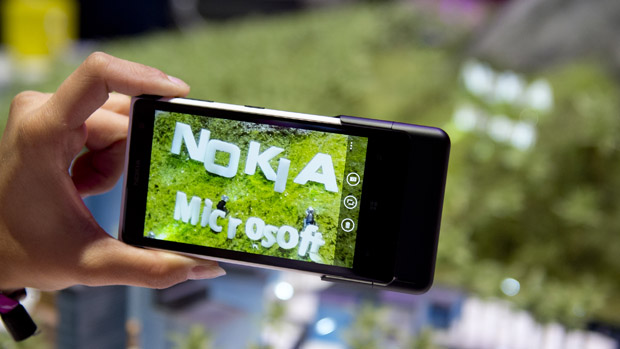Nokia's demise: the highs and lows of a once-mighty brand
Once the world's largest mobile handset maker, Nokia's brand has now been ditched by Microsoft

A free daily email with the biggest news stories of the day – and the best features from TheWeek.com
You are now subscribed
Your newsletter sign-up was successful
Microsoft has announced that it is axing the brand name Nokia from its latest smartphone, which will be sold as the Microsoft Lumia rather than Nokia Lumia.
Microsoft bought Nokia's mobile division in April for $7.2bn (£4.6bn) and pledged to continue to produce Nokia-branded mobile phones for ten years. But the company is "currently having a big shake-up," reports the BBC, and CEO Satya Nadella announced cuts of up to 18,000 jobs.
Around 12,500 of those jobs are expected to be from the company's recently-created Nokia division, analysts say.
The Week
Escape your echo chamber. Get the facts behind the news, plus analysis from multiple perspectives.

Sign up for The Week's Free Newsletters
From our morning news briefing to a weekly Good News Newsletter, get the best of The Week delivered directly to your inbox.
From our morning news briefing to a weekly Good News Newsletter, get the best of The Week delivered directly to your inbox.
The Nokia brand name will continue to exist on the company's non-mobile division, which Microsoft does not own. But as the once dominant Nokia brand slips from view, here are some of the company's highs and lows.
Highs
1987: In 1984, Nokia launched one of the world's first transportable phones, but it wasn't until the launch of the Mobira Cityman in 1987 that the company began to experience any great commercial success. The phone became known as the "Gorba" after Russian president Mikhail Gorbachev was photographed using one.
1998: After a string of successful product launches, Nokia became the world's largest mobile handset manufacturer – a title it held onto until 2012.
1999: Nokia launched the 3210 – a comparatively sleek phone with an inbuilt aerial that went on to become one of the most popular handsets in history. Around the world 160 million 3210s were sold.
A free daily email with the biggest news stories of the day – and the best features from TheWeek.com
2001: Annual reports show that the company grew exponentially from 1996, increasing annual profits from $9.45bn to $45bn in 2001.
2003: Nokia launched the 1100. The handset became another huge success, selling more than 250 million units worldwide.
2004: Nokia introduced its first 3G phone, the 6630 – which allowed users to access the internet (albeit slowly).
2005: The company sold its billionth phone.
2007: In 2007, Nokia was listed as the fifth most valued brand in the world. But "everything was to change", ABC News says, as that same year Apple launched its first iPhone.
2011: Nokia announced plans for a "broad strategic partnership" with Microsoft, a move that came as "an attempt to regain ground lost to the iPhone and Android-based devices," the BBC reported at the time.
Lows
2009: Facing stiff competition in the mobile market from comparative newcomer Apple and handset producers powered by Google's new Android operating system, Nokia posted its first loss for ten years. Touchscreen devices, including the Apple iPhone, Palm Pre and HTC Hero, ate into "the commanding lead once enjoyed by Nokia", The Guardian reported. At the time Nokia's chief executive, Olli-Pekka Kallasvuo, blamed "capacity constraints" which affected smartphone production.
2010: Microsoft executive Stephen Elop was brought in as chief executive to help the firm find a way to keep up with its competitors. Elop's first internal memo likened the company's position to "a person standing on a burning oil platform, deciding whether to plunge into icy waters or perish", ABC News says. Not long after the memo was sent, Nokia announced 1,800 jobs would be cut.
2012: Samsung overtook Nokia as the world's largest manufacturer of mobile phones.
2014: Microsoft announced that it would drop the Nokia brand name from its new Lumia line of phones.